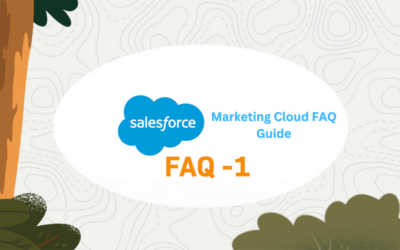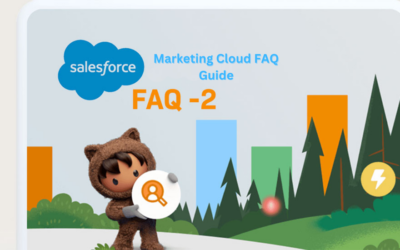Hiring a Salesforce CPQ (Configure, Price, Quote) Architect is a pivotal decision for any organization looking to streamline its sales processes, improve revenue generation, and enhance customer experiences. These professionals play a vital role in implementing and customizing Salesforce CPQ solutions to meet a company’s unique needs.
In this comprehensive guide, we’ll walk you through the top 20 interview questions to help you evaluate and select the best Salesforce CPQ Architect for your organization. We’ve included detailed answers to each question to empower you in making an informed hiring decision. If you need assistance with Salesforce CRM setup and optimization, companies like CRM Force can provide valuable expertise and support.
1-What is Salesforce CPQ, and how does it fit into the Salesforce ecosystem?
Answer: Salesforce CPQ (Configure, Price, Quote) is a powerful tool within the Salesforce ecosystem that streamlines the sales process by enabling organizations to configure complex products, price them accurately, and generate professional quotes for customers. It integrates seamlessly with other Salesforce solutions like Sales Cloud and Service Cloud, ensuring a unified platform for managing customer interactions, sales, and support. A CPQ Architect should be able to explain how Salesforce CPQ enhances sales efficiency and integrates with other Salesforce modules.
2- What are the key components of a Salesforce CPQ solution, and how do they work together?
Answer: A CPQ solution comprises various components, including Product Catalog, Price Books, Product Rules, Pricing Rules, Quote Templates, and more. These components collaborate to create a seamless quoting and pricing process. An Architect should be able to explain how each component functions and how they interact within the system.
3- How do you approach requirements gathering and analysis for a Salesforce CPQ implementation project?
Answer: Requirements gathering is a critical step in any CPQ project. A competent Architect will emphasize the importance of engaging stakeholders to identify their needs. They should describe a systematic process of conducting interviews, workshops, and documentation to define clear project objectives and deliverables.
4- What are the key components of a Salesforce CPQ solution, and how do they work together?
Answer: A CPQ solution comprises various components, including Product Catalog, Price Books, Product Rules, Pricing Rules, Quote Templates, and more. These components collaborate to create a seamless quoting and pricing process. An Architect should be able to explain how each component functions and how they interact within the system.
5- What is the purpose of Product Bundles, and how can they benefit a company’s sales processes?
Answer: Product Bundles are collections of products or services that are often sold together. They streamline the quoting process by allowing users to add multiple items to a quote with a single click. An experienced Architect will explain how Product Bundles simplify upselling, cross-selling, and creating accurate quotes quickly.
6- How do you handle complex pricing scenarios in Salesforce CPQ, such as volume-based discounts and tiered pricing?
Answer: Handling complex pricing scenarios requires the use of Price Rules and Pricing Methods in Salesforce CPQ. A knowledgeable Architect should discuss how to set up these rules to accommodate various discount structures and tiered pricing models, ensuring accurate pricing for customers.
7- What is the purpose of Product and Price Rules in Salesforce CPQ, and how do they impact quoting processes?
Answer: Product and Price Rules are used to automate the quoting process by defining logic that applies specific products or prices based on certain conditions. An expert Architect will explain how to create and manage these rules effectively, ensuring that quotes are accurate and consistent.
8- What are some common mistakes organizations make during Salesforce CPQ implementations, and how do you prevent them?
Answer: A seasoned Architect will highlight common pitfalls like insufficient requirements gathering, poor user adoption, or inadequate testing. They should discuss proactive measures such as comprehensive project planning, user training, and thorough testing to avoid these mistakes.
9- How do you ensure user adoption and provide training for Salesforce CPQ users within the organization?
Answer: User adoption is crucial for the success of a CPQ implementation. Look for a candidate who emphasizes the importance of user training, documentation, and ongoing support. They should describe their approach to creating a positive user experience and addressing user concerns.
10- How do you handle customization requests from stakeholders while maintaining the integrity of the Salesforce CPQ solution?
Answer: Balancing customization and system integrity is essential. An experienced Architect should discuss their approach to evaluating customization requests, ensuring they align with business goals, and implementing them in a way that doesn’t compromise system stability or future upgrades.
11- What role do analytics and reporting play in a Salesforce CPQ environment, and how do you leverage them to drive business insights?
Answer: Analytics and reporting are essential for monitoring performance and making data-driven decisions. A capable Architect will explain how they use Salesforce CPQ’s reporting capabilities to track key metrics, identify trends, and provide valuable insights for improving sales strategies and processes.
12- What are the different types of Quote Line Models in Salesforce CPQ, and when would you use each type?
Answer: There are three types: Product, Option, and Subscription. Product is used for standard line items, Option for customizable add-ons, and Subscription for recurring services. The choice depends on the nature of the product or service being quoted.
13- What are Price Conditions in Salesforce CPQ, and how can they be utilized to control pricing dynamically?
Answer: Price Conditions allow you to apply conditional logic to pricing. An Architect should discuss how they use Price Conditions to control pricing based on various factors, like account type or contract terms.
14- How do you manage multiple currencies in Salesforce CPQ, especially when dealing with international customers?
Answer: Managing multiple currencies requires configuring Currency Types and Currency Exchange Rates. An Architect should elaborate on how to set up and maintain these to ensure accurate pricing and reporting for international deals.
15- What is the purpose of Product and Price Dimensions in Salesforce CPQ, and how can they be utilized for complex product structures?
Answer: Product Dimensions allow you to create customizable products with various attributes. Price Dimensions enable dynamic pricing based on these attributes. An Architect should explain how to use them for products like configurable laptops with different specifications.
16- How do you handle discounts and promotions in Salesforce CPQ, and can you provide an example of a scenario involving discount management?
Answer: Discounts and promotions often play a crucial role in sales. An Architect should discuss how to set up Discount Schedules and Discount Tiers and provide an example of a scenario where these were used to address specific business needs.
17- How do you handle complex approval processes in Salesforce CPQ, and what tools or features are available for this purpose?
Answer: Approval processes in CPQ involve defining rules for discounts, special pricing, or quote terms. The Architect should discuss how they configure and customize approval processes using tools like Approvals and Approvals Merge Fields.
18- How do you ensure that data privacy and security requirements are met when handling customer information in Salesforce CPQ?
Answer: Data privacy and security are critical. An Architect should discuss the use of security features like field-level security, object-level security, and data encryption to protect sensitive customer data within CPQ.
19- How do you optimize Salesforce CPQ performance, especially in scenarios with a large number of quotes and line items?
Answer: Performance optimization is essential for handling large datasets. An Architect should explain strategies like data archiving, query optimization, and custom indexing to ensure CPQ operates efficiently in such scenarios.
20- What tools or methods do you use for troubleshooting and debugging issues in Salesforce CPQ, and can you provide an example of a challenging issue you resolved?
Answer: An Architect should discuss their approach to troubleshooting, including tools like Debug Logs and Salesforce Inspector. They should share an example of a complex issue they resolved, showcasing their problem-solving skills.
Conclusion
In today’s highly competitive business landscape, the role of a skilled Salesforce CPQ Architect cannot be overstated. Their expertise extends far beyond just configuring and implementing Salesforce CPQ solutions; they are the architects of streamlined sales processes, dynamic pricing structures, and the backbone of efficient quoting systems. These professionals possess a unique blend of technical proficiency and strategic thinking, enabling them to align Salesforce CPQ with an organization’s unique needs and industry-specific challenges. They play a pivotal role in designing and customizing Salesforce CPQ to empower sales teams with the tools they need to drive revenue, while also ensuring data integrity and compliance with evolving regulations. With their deep understanding of Salesforce CPQ’s capabilities, these architects are the driving force behind sales automation and the delivery of exceptional customer experiences.
In conclusion, the expertise and contributions of a Salesforce CPQ Architect are instrumental in reshaping how businesses approach their sales operations. Their ability to navigate complex pricing models, configure multi-level product options, and integrate CPQ with various systems ensures that organizations can adapt and thrive in an ever-changing marketplace. As businesses continue to invest in Salesforce CPQ to gain a competitive edge, the role of the Salesforce CPQ Architect becomes increasingly vital in charting the course toward efficiency, profitability, and customer satisfaction. To learn more about how CRM Force can assist you in recruiting top CRM talent and optimizing your CRM strategies for successful drip campaigns, contact us today. Together, let’s maximize your customer engagement. Contact Us today.





